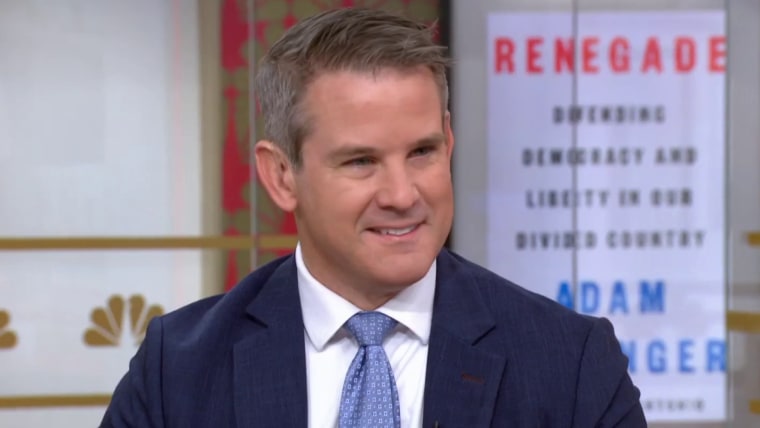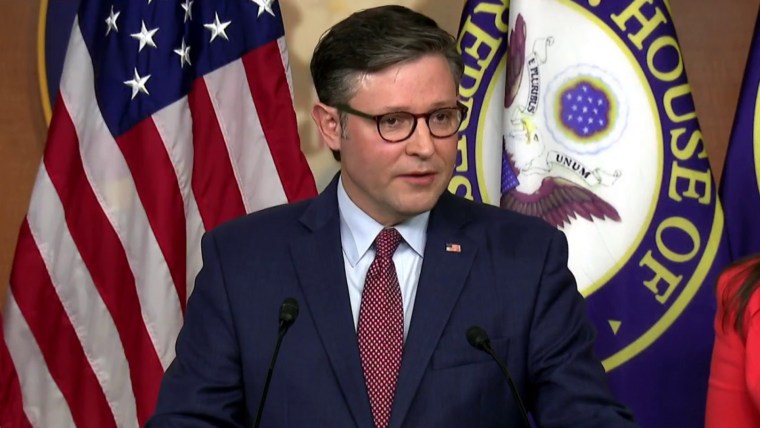The Associated Press and The Washington Post have investigated a brief and previously opaque episode in House Speaker Mike Johnson’s legal career: his roughly two years, from 2010 to 2012, as dean of the Paul Pressler School of Law at Louisiana College (now known as Louisiana Christian University). Both reports shed new and valuable light on dysfunction and secrecy at the fledgling law school, raising legitimate questions about Johnson’s managerial capabilities and commitment to transparency.
This two-year stint in Johnson’s career also provides a vivid window into some of the inner workings of the Christian right, including its zeal for transforming a secular legal system into one based on their conception of “biblical law.” The planners behind the Pressler law school aspired to train lawyers — much like Johnson and the lawyers he worked with at Alliance Defending Freedom — to practice law according to the “Judeo-Christian foundation of the legal system,” as Johnson put it.
This apparent inability to contain internal strife and secure basic prerequisites for the school’s operation bodes ill for Johnson’s speakership.
The Post’s report details how Johnson helped promote, raise and spend money for the new law school, including the purchase of a building in downtown Shreveport. Although Johnson unsurprisingly hyped the new school’s prospects to donors, he later admitted he lacked a full assessment of what it would take to build facilities, hire faculty and obtain American Bar Association accreditation, which state regulators across the country require for graduates to take the bar exam.
The Post obtained a confidential 2013 memo in which Johnson answered questions from the Louisiana College Board of Trustees. The memo revealed, according to the Post, that “when given a leadership opportunity, Johnson oversold his project’s prospects and failed to divulge key problems until after he left the job.” Rather than take responsibility for the shortcomings, Johnson “blamed others,” including administrators and the college’s accreditation agency.
Similarly, the AP reports that the law school “collapsed roughly a decade ago without enrolling students or opening its doors amid infighting by officials, accusations of financial impropriety and difficulty obtaining accreditation, which frightened away would-be donors.” While the AP found no evidence that Johnson himself had engaged in any financial impropriety, its investigation did uncover that his efforts to raise necessary money fell short as “drama percolated behind the scenes.”

This apparent inability to contain internal strife and secure basic prerequisites for the school’s operation bodes ill for Johnson’s speakership. Already he is facing discord of far greater scope and scale, and with infinitely higher stakes: keeping the entire United States government open and functioning. And he will have to navigate those issues under far more scrutiny than he had at Louisiana College.
When Johnson was on his promotional and fundraising tour for the law school in 2011, it probably appeared to be an easy sell. The school was to be named for Paul Pressler, at the time a hero to ultraconservative Southern Baptists like Johnson. A former Texas state judge, Pressler had been the chief architect of the 1970s right-wing takeover of the Southern Baptist Convention in the name of “biblical inerrancy.” What followed amounted to a purge of more liberally minded Baptists from the denomination, and the Christian right’s decades-long marriage to the GOP. (Later, Pressler was sued by men who said he had sexually assaulted them, charges the 93 year-old Pressler denied in court and continues to deny to the press.)
Johnson was dispatched to boost his new entrant in legal education to top figures on the religious right.
In 2010, the year Johnson became dean, Pressler helped promote the school. “Law is the way we maintain society,” he said at a news conference, “and without the Christian concept, and without the Christian dedication, there is no way that democratic government is going to operate effectively.” According to a contemporaneous Louisiana College newsletter, Johnson had several high-level contacts in the Christian right, like Family Research Council president Tony Perkins and Focus on the Family founder James Dobson, who served on the law school’s board.
By this time, Christian right leaders were well familiar with the role Christian law schools could play in their movement. In 1979, the televangelist Oral Roberts and the Harvard-trained lawyer Herb Titus, who rejected his secular legal training after coming to believe he had a “dominion mandate” to “restore the bible to legal education,” founded the first of such law schools at Roberts’ eponymous university in Tulsa, Oklahoma. The law school later moved to Regent University, the Virginia Beach institution founded by the televangelist Pat Robertson, where it remains today. In 2004, Liberty University, the evangelical college founded by Jerry Falwell in Lynchburg, Virginia, opened its own law school with a vision “to see again all meaningful dialogue over law include the role of faith and the perspective of a Christian worldview as the framework most conducive to the pursuit of truth and justice.”
From Louisiana, Johnson was dispatched to boost his new entrant in legal education to top figures on the religious right, and the school’s newsletter boasted of his high-level connections. Mike Huckabee, the former governor of Arkansas, keynoted a fundraising lunch in 2011. A “Sharing the Vision” section of the newsletter showed Johnson attending ADF’s National Litigation Academy; meeting with members of Congress and top state officials in Louisiana; meeting evangelical actor Kirk Cameron; and in Washington at the Values Voter Summit, Heritage Foundation, and the powerful and secretive agenda-setting hub, the Council for National Policy.
Two things can be true at once. First, Johnson had close relationships with top influencers in the Christian right who, like him, seek to subvert our legal system with their “biblical worldview.” At the same time, he was unable to parlay this support into establishing the law school they envisioned. No one, even someone with important political connections, succeeds at every endeavor. But as speaker, either his failure (to manage the chaotic, extremist Republican caucus) or his success (to carry out his Christianist goals for the country) forecast grim possibilities for our already fragile democracy.
